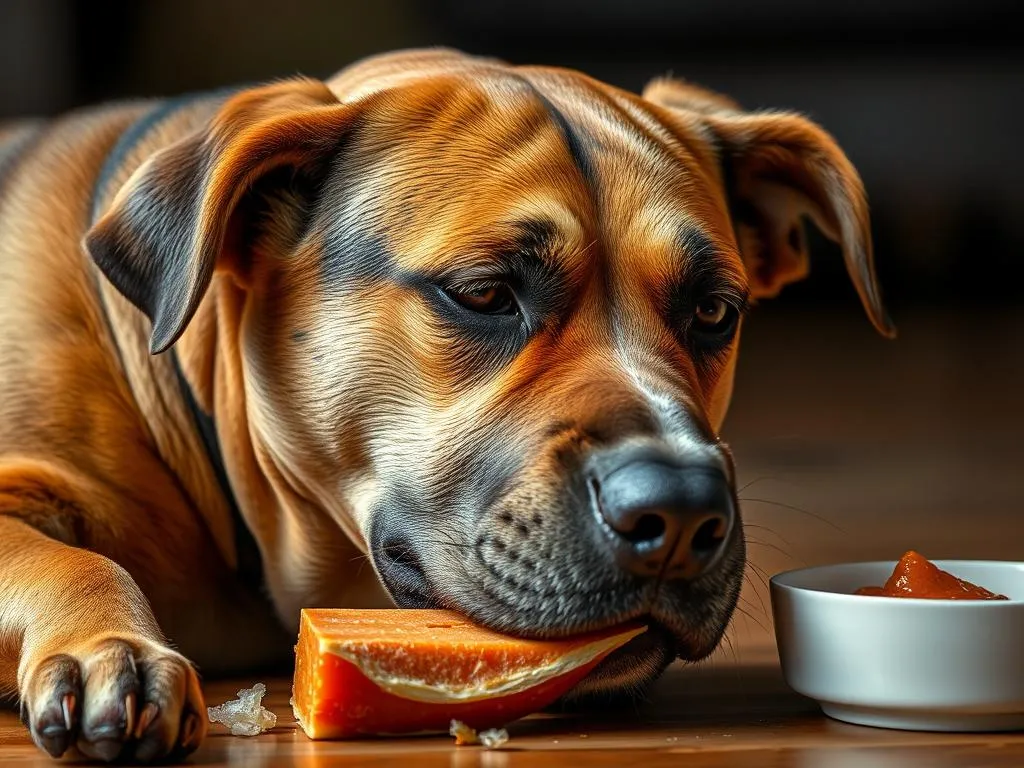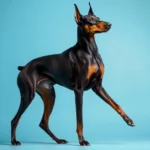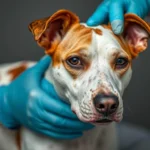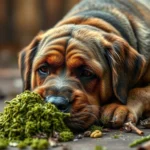
Introduction
As a dog owner, ensuring the health of your furry friend is paramount. One common issue that can raise alarm is dog coughing after eating. While occasional coughing can be normal, persistent coughing may indicate underlying health problems. Understanding the causes, symptoms, and potential remedies is essential for maintaining your dog’s well-being. This article will delve into the intricacies of dog coughing, its causes, symptoms to watch for, diagnosis, treatment options, and preventative measures.
Understanding Dog Coughing
What is Coughing?
Coughing in dogs is a reflex action that helps clear the airways of irritants, mucus, or foreign bodies. While some coughing is normal, especially in response to environmental triggers, there are distinctions to be made between normal and abnormal coughing.
Types of Coughs
Dogs can exhibit various types of coughs, each indicating different issues:
- Dry Cough: Often a sign of irritation in the throat or trachea.
- Wet Cough: Typically indicates mucus in the airways; may be associated with infections.
- Honking Cough: Common in dogs with tracheal collapse; sounds like a honk.
- Productive Cough: Produces phlegm; often necessitates veterinary attention.
Recognizing the type of cough can assist in identifying the underlying cause, especially when your dog coughs after eating.
Causes of Coughing After Eating
Physical Causes
Several physical factors can lead to coughing after meals:
- Food Aspiration: If a dog inhales food instead of swallowing it, this can trigger a cough as the body attempts to expel the foreign material.
- Esophageal Disorders: Conditions like megaesophagus, where the esophagus is enlarged, can cause food to remain in the esophagus for too long, leading to coughing.
- Allergies: Dogs can be allergic to certain food ingredients, which can lead to coughing as a symptom.
Health Conditions
Certain health conditions can also contribute to dog coughing after eating:
- Kennel Cough: A highly contagious respiratory disease that can cause a persistent cough, particularly after eating or drinking.
- Heart Disease: Coughing can signify fluid buildup in the lungs due to heart issues.
- Respiratory Infections: Infections can lead to inflammation in the airways, causing coughing.
Dietary Factors
Diet plays a significant role in your dog’s overall health:
- Eating Too Quickly: Dogs that gulp down their food may not chew adequately, increasing the risk of aspiration.
- Inappropriate Food Choices: Certain foods may not sit well with your dog, leading to digestive issues and subsequent coughing.
- Food Intolerances or Allergies: Similar to physical allergies, some dogs may react to specific ingredients in their food, resulting in coughing.
Symptoms to Watch For
Signs of Coughing After Eating
When your dog coughs after eating, pay attention to the following signs:
- Frequency and Duration of Cough: Is the cough persistent or occasional? A persistent cough warrants attention.
- Accompanying Symptoms: Look for other signs such as lethargy, vomiting, or loss of appetite, which could indicate a more serious issue.
When to Seek Veterinary Care
If you notice any of these emergency signs, seek veterinary care immediately:
- Difficulty Breathing: If your dog is struggling to breathe, this requires urgent intervention.
- Excessive Lethargy: If your dog seems unusually tired or unresponsive, it could indicate a serious health problem.
Timely intervention can make a significant difference in your dog’s health outcomes, so don’t hesitate to consult your veterinarian if coughing persists.
Diagnosis
Veterinary Examination
During a veterinary visit, the vet will typically conduct a thorough examination. Expect the following:
- Physical Examination: This may include listening to your dog’s heart and lungs.
- Diagnostic Tests: Your vet may recommend X-rays, blood tests, or other diagnostic measures to determine the cause of the cough.
Importance of History
Keeping a detailed record of your dog’s symptoms can aid your veterinarian significantly:
- Symptoms and Behavior: Note when the coughing occurs, its frequency, and any accompanying behaviors.
- Dietary Habits: Document any changes in diet, feeding practices, or new foods introduced recently.
Your observations can provide valuable insights that help diagnose the issue more accurately.
Treatment Options
Home Remedies
Before jumping to veterinary treatments, consider some home remedies:
- Dietary Adjustments: Switching to smaller portions and using slow feeders can help prevent your dog from eating too quickly.
- Hydration and Soothing Aids: Adding honey to your dog’s diet can soothe the throat, but consult your vet first to ensure it’s appropriate.
Veterinary Treatments
If home remedies do not alleviate the problem, veterinary treatments may become necessary:
- Medications: Your vet may prescribe cough suppressants, antibiotics for infections, or other medications targeting specific conditions.
- Treatment for Underlying Health Issues: Addressing the root cause is essential for long-term health.
Lifestyle Changes
Some lifestyle adjustments can also make a difference:
- Training to Eat Slowly: Teaching your dog to eat at a slower pace can reduce the risk of coughing after meals.
- Regular Vet Check-Ups: Routine examinations can catch potential health issues early.
Preventative Measures
Proper Diet and Feeding Practices
Choosing the right food and feeding practices can help prevent coughing:
- Choosing the Right Food: Consult your vet to determine the best diet for your dog’s specific needs.
- Techniques to Prevent Overeating: Use slow feeders or puzzle toys to encourage slower eating.
Regular Health Check-Ups
Routine veterinary visits are crucial:
- Importance of Routine Vet Visits: Regular check-ups help monitor your dog’s health and catch any issues early.
- Vaccination and Parasite Control: Keeping vaccinations up to date and managing parasites can prevent respiratory infections.
Environmental Considerations
Improving your dog’s environment can also contribute to better health:
- Reducing Allergens in the Home: Regular cleaning can help minimize dust and allergens.
- Maintaining a Smoke-Free Environment: Avoid exposing your dog to smoke or strong odors that can irritate their respiratory system.
Conclusion
Monitoring your dog’s health is essential for ensuring a long and happy life. If you notice your dog coughing after eating, it’s crucial to observe the symptoms and consult a veterinarian if the condition persists. By understanding the causes and implementing proper care practices, you can maintain a healthy lifestyle for your furry friend.
FAQs
What should I do if my dog coughs after eating?
If your dog coughs occasionally after eating, monitor the situation. However, if the coughing persists or is accompanied by other concerning symptoms, consult your veterinarian.
Can allergies cause my dog to cough after eating?
Yes, food allergies or intolerances can lead to coughing as a symptom. Consider discussing your dog’s diet with your vet to identify any potential culprits.
How can I prevent my dog from coughing after meals?
Feeding smaller portions, using slow feeders, and ensuring a proper diet can help prevent coughing after eating. Regular veterinary check-ups are also essential for monitoring your dog’s health.
When should I take my dog to the vet for coughing?
If your dog exhibits persistent coughing, difficulty breathing, or any other alarming symptoms, it’s essential to seek veterinary care immediately.









